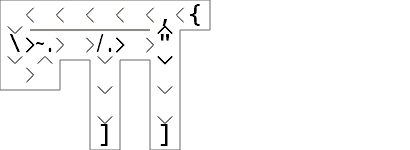For this challenge, a linked list looks like this:
[1, 2, 4, 0, 6, 1, 3, 1]
You'll notice there's no data; each item in the list is just a reference to the index of the next one. Your task is to write a program or function which will follow a linked list like this forever, outputting each item as it is encountered. For example, for the above input:
[1, 2, 4, 6, 3, 0, 1, ...]
Input and output can be represented in any reasonable manner. All numbers in the input will be valid indices in the list, and you can choose if it's 0- or 1-indexed. The output will be infinite, and as long as your program would theoretically give a correct result given infinite time and resources it's valid.
Test cases:
Zero indexed, using lists.
[0] -> [0, 0, ...]
[1, 0] -> [1, 0, 1, ...]
[0, 1, 2] -> [0, 0, ...]
[2, 1, 0] -> [2, 0, 2, ...]
[4] -> (does not need to be handled)


